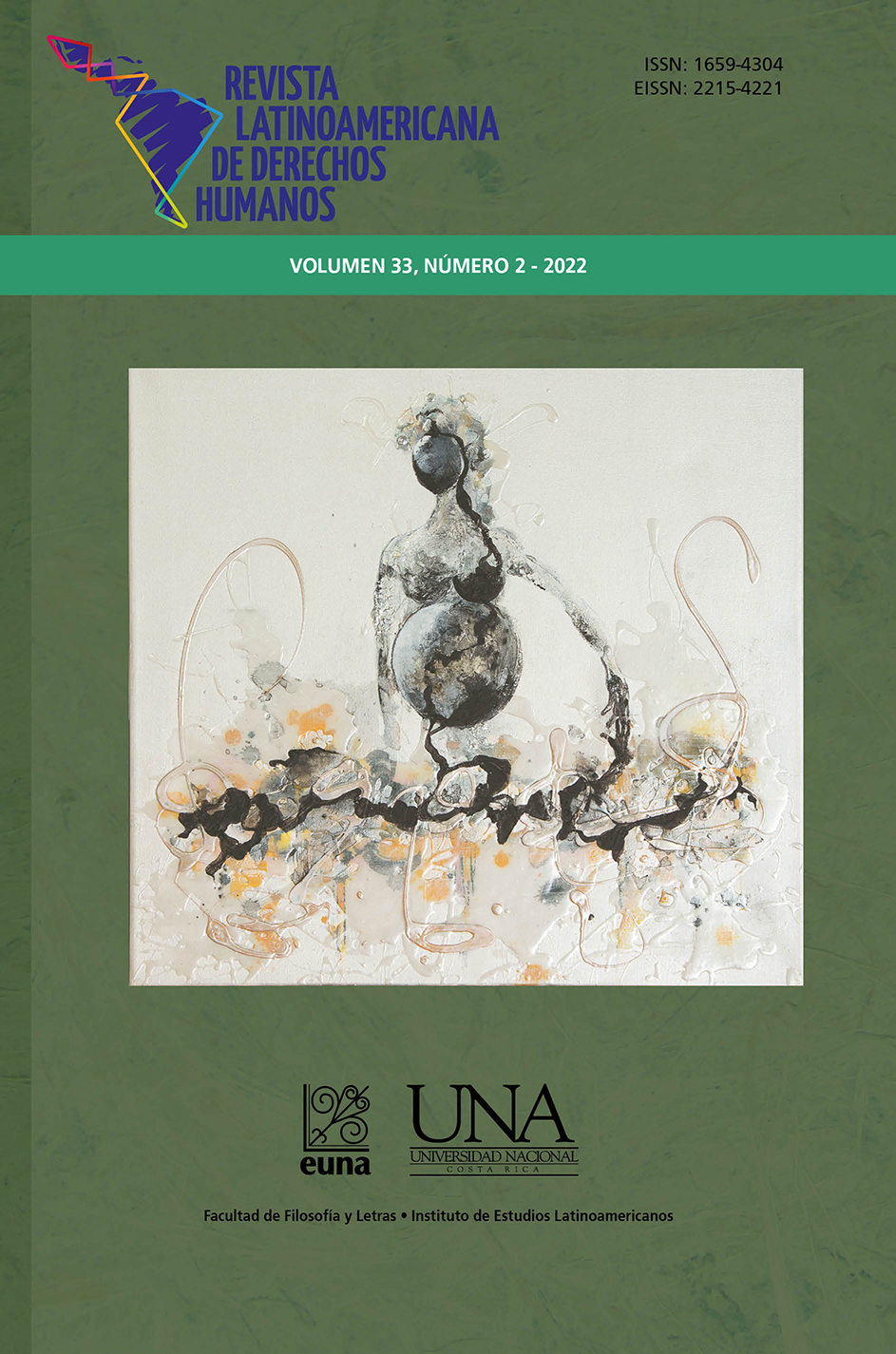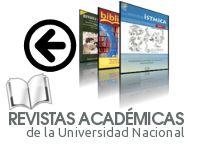Use of time in couple relationships and in the exercise of motherhood and fatherhood in Costa Rica: a critical analysis from a sociological perspective
DOI:
https://doi.org/10.15359/rldh.33-2.5Keywords:
Inequality, Feminism, Maternity, Paternity, Use of timeAbstract
The objective was to develop an analysis of the existing asymmetries and gaps in the use of time between men and women, both in their relationship as a couple and in the exercise of motherhood and fatherhood, which means reviewing, on the one hand, the of daily tasks linked to unpaid domestic work, the care and upbringing of minors and, on the other hand, the free time dedicated to recreational, sports and personal care activities. The theoretical framework takes up the contributions of sociology and sexual political economy, where romantic love, idyllic motherhood and motherhood as punishment are problematized, in contrast to contemporary trends that reflect on the experience of pleasant motherhood. In methodological terms, it corresponds to a bibliographical research, where information collected by the National Survey of Time Use (abbreviated as ENUT from its original Spanish name, Encuesta Nacional de Uso del Tiempo) 2017 and other studies developed at the national level were used. It is verified that a social and sexual contract persists within couple relationships, which places women in a disadvantaged situation regarding the use of the most valuable resource: time. Since there are clear asymmetries between both sexes regarding days of unpaid work, care and upbringing. This is based on the romantic idea of love, which works to extract time and vital energy from women, proving that there is a supervised but little accompanied maternity; finally, some reflections are offered on the exercise of pleasant motherhood and, therefore, of responsible parenthood.
References
Bauman, Z. (2006). Amor líquido. Acerca de la fragilidad de los vínculos humanos. Fondo de Cultura Económica. Argentina.
Ceciliano, Y. (2007). Paternidad interrumpida e idiomas masculinos emergentes. Cuaderno de Ciencias Sociales 148. Flacso. Sede Académica, Costa Rica.
De Miguel, A. (2015). Neoliberalismo sexual. El mito de la libre elección. Ediciones Cátedra, Madrid.
Fernández, D. (2011). Sexualidad y género en condiciones de pobreza. Editorial EUNA, Heredia, Costa Rica.
Florez-Estrada, M. (2010). Economía del Género. San José: Editorial UCR.
Flórez-Estrada, M. (2011). De “ama de casa” a mulier economicus. San José: Editorial
UCR.
Flórez-Estrada, M. (2017). Discursos sobre la maternidad moderna y la Reforma social costarricense (Décadas de 1930-1940). Trabajo Final de Graduación de Doctorado en Estudios sobre Sociedad y Cultura, Universidad de Costa Rica. http://repositorio.sibdi.ucr.ac.cr:8080/jspui/handle/123456789/7245
Gamboa, G. (2017). Maternar es político: construyendo maternidades feministas, placenteras y dignas. Trabajo Final de Graduación de Licenciatura en Antropología, Universidad de Costa Rica.
Giddens, A. (1998). La transformación de la intimidad. Sexualidad, amor y erotismo en las sociedades modernas. Ediciones Cátedra. España.
Pateman, C. (1995). El contrato sexual. Barcelona: Editorial Anthropos.
Rubin, G. (1986). El tráfico de mujeres. Notas sobre la economía política del sexo. Revista Nueva Antropología, 95-145.
Sassen, S. (2003). Contrageografías de la globalización. Género y ciudadanía en los circuitos transfronterizos. Edición Traficantes de Sueños. España.
Scott, J. (2000). La mujer trabajadora en el siglo XIX. En G. Duby, & M. Perrot (ed.), Historia de las mujeres. El siglo XIX, cuerpo trabajo y modernidad. Madrid: Grupo de Editores Santillana.
Sennett, R. (2004). La corrosión del carácter. Las consecuencias personales del trabajo en el nuevo capitalismo. Anagrama. Barcelona.
Sennett, R. (2006). La cultura del nuevo capitalismo. Editorial Anagrama. España.
Published
How to Cite
Issue
Section
License
El material que se publica en esta Revista está bajo una licencia “Creative Commons” 3.0 Costa Rica (CC, Reconocimiento-NoComercial-SinObraDerivada 3.0 Costa Rica (CC BY-NC-ND 3.0 CR) . Esto significa que el material publicado en la revista se puede compartir (copiar y distribuir) en cualquier medio o formato considerando que se debe reconocer de forma adecuada la autoría del material y la fuente, no puede utilizarse con fines comerciales y no se aceptan las obras derivadas (remezclar, transformar o crear a partir del material).








